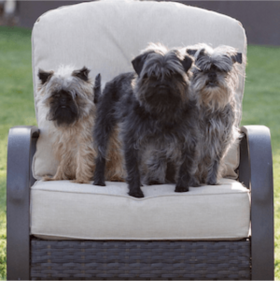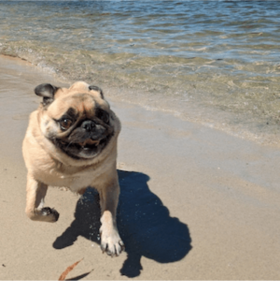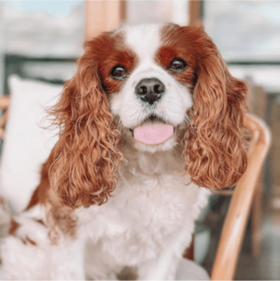Last Updated: 07/05/2025
Brussels Griffon Breed Guide
Learn all about the Brussels Griffon breed in our comprehensive Vet-written guide.
Author: Dr Carla Paszkowski BVSc (Hons)
Reading Time: 33 minutes - long read
A complete breed guide for Brussels Griffon Dogs
In the varied world of canine companions, the Brussels Griffon is a captivating and charismatic breed that effortlessly steals hearts with its unique charm. Originating from Belgium, this small-sized dog is admired for its distinctive appearance, characterised by expressive eyes, a distinctive beard, and a wiry coat that demands admiration. Despite its tiny stature, the Brussels Griffon boasts a larger- than-life personality, blending an endearing mix of intelligence, playfulness, and unwavering loyalty. This article delves into the fascinating history, temperament, and noteworthy traits of the Brussels Griffon, shedding light on why this pint-sized pup has become a beloved and sought-after addition to families around the world.
Brussels Griffon Facts
| Breed size: | Place of origin: | Other names: |
| Small | Brussels, Belgium | Griff, Griffon, Griffon Bruxellois, Petit Brabancon, Belgium Griffon |
| Breed group: | Energy level: | Weight range: |
| Toy | High | 4-6kg |
| Life expectancy: | Tendency to bark: | Height range: |
| 12-15 years | Moderate | 23-28cm tall |
| Drool factor: | Coat tyype: | Colours: |
| Low | Short or medium length, wiry or smooth | Range from red, black, black and tan, or belge (a mix of black and reddish-brown) |
| Shedding factor: | Overall grooming needs: | Social needs: |
| Low (rough coated varieties do not shed). Smooth coat varieties shed seasonally. | Moderate | Very social towards people, other dogs and cats |
How big do Brussels Griffons get?Brussels Griffons are typically 23-28cm tall at the shoulder and weigh 4-6kg when they are fully grown. |
Do Brussels Griffons shed?The rough coated Brussels Griffon does not shed much, but does have higher grooming needs. They may require clipping of their shaggy hair and 'beard' every few weeks. The smooth coated Brussels Griffon does shed seasonally, particularly before and after winter. During a seasonal shed, regular hair brushing is a good idea, as is feeding them a top quality diet to keep their fur silky and smooth. For Griffons, we recommend a slicker brush and an undercoat rake, and consider a deshedding brush too! |
How much does a Brussels Griffon cost?Griffon puppies can cost anywhere from $2200 to $4500. It is always worth checking a rescue organisation first - not only will this likely be cheaper than purchasing a dog from a breeder, but you will be saving a life! |
Are Brussels Griffons good pets?With their playful, social personalities and trainable nature, Griffons make excellent pets. They do well in apartments and are particularly cheerful and affectionate. However they can be sensitive, moody and demanding of their owner's attention - which makes them unsuitable for people with busy schedules but great for empty nesters looking for companionship. |
How long do Brussels Griffons live?The Griffon lifespan is 12-15 years. As with any breed, they will live much longer if you feed them a premium quality diet, never let them become overweight, and keep their teeth in top condition! |
Do Brussels Griffons bark a lot?Griffons are quite prone to barking, and have a loud yappy bark. This makes them excellent watchdogs, however it can bother your neighbours a little if left unchecked! To reduce your Griffon's barking, ensure you train with positive reinforcement from a young age and reduce problem behaviours before they begin. |
How do I choose a Brussels Griffon breeder?When looking for a Griffon, your options are to: a) adopt from a rescue (this is our top recommendation!) b) buy from an or online marketplace or pet store (NOT recommended!), or c) Research a reputable breeder. Never purchase a puppy without inspecting the breeder's premises and asking the 10 Breeder Checklist Questions first. Good breeders socialise their animals, house them humanely, allow you to inspect their premises, and selectively breed healthy traits and good temperaments. Read our Guide to Finding a Good Breeder for more tips. |
Are Brussels Griffons good with kids?Yes, Griffons are excellent with kids! With playful, curious energy, Griffons often match the energetic nature of children and make great play mates. As with any breed, proper socialisation is essential to ensure your dog forms positive associations from a young age. And because Griffons are only small, always supervise young children around them to make sure your dog is not hurt. |
Brussels Griffon History

The Brussels Griffon was originally bred in Belgium to hunt and kill rats, particularly in stables where horses for carriage cabs were housed. The Griffon breed was developed from a combination of several breeds including the Pug, Affenpinscher, and English Toy Spaniel. It's easy to see that the Griffon boasts wiry hair from the Affenpinscher, and a squished brachycephalic face and large expressive eyes from the pug. Over time, the Griffon gained popularity as workers and nobles started keeping them as companion pets.
After World War I and II, the Brussels Griffon numbers declined in Europe because keeping a small dog was considered an unecessary luxury. British breeders managed to preserve the breedn throughout these periods. The breed gained popularity in the 1990s after the movie 'As Good As It Gets' showcased a Griffon alongside Jack Nicholson.
Brussels Griffon Personality
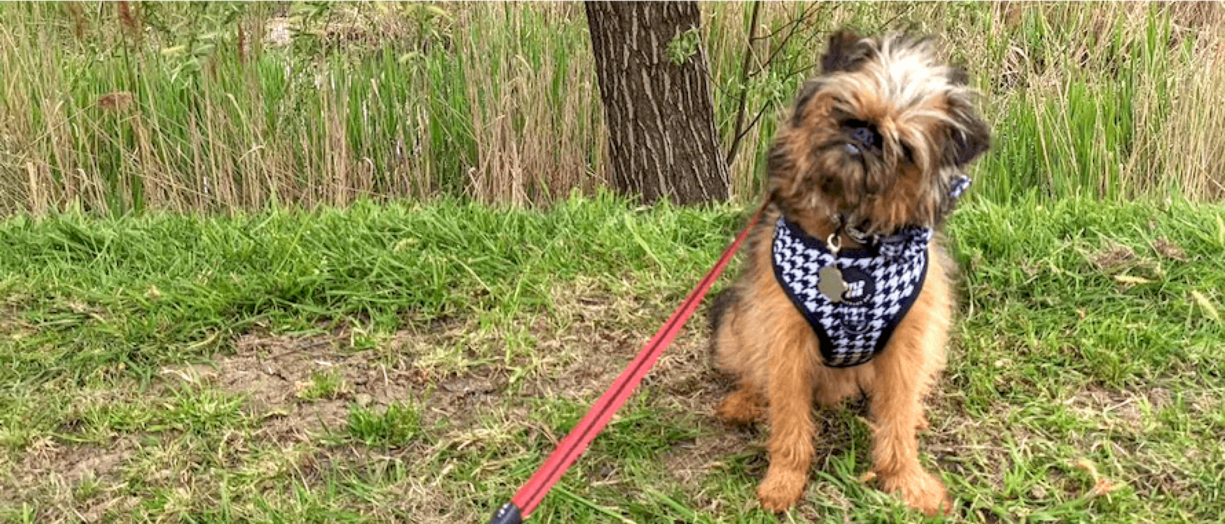
Typically, the Brussels Griffon is outgoing, active, curious and playful. There is a lot of variation in personality within in the breed, however - some Griffons may be on the timid and shy side, while others may be outgoing to the point of bossy. Most Griffon parents find one trait in common, however - every Griffon loves attention. Often referred to as 'velcro dogs', the Griffon loves staying close to their owner and may misbehave if they are left alone.
The Brussels Griffon is intelligent and requires lots of mental stimulation. They are quick learners and easy to train. However, they can be a little stubborn and bossy at times, which means that consistency and patience are important.
Because Griffons can suffer from anxiety and stress when left alone for long periods of time, long lasting treats or puzzle toys are good for keeping them distracted, busy and entertained.
Nutrition
What to feed a Brussels Griffon Puppy?
Brussels Griffon puppies need to eat a premium, small breed diet that is nutritionally formulated to meet AAFCO Guidelines until they are 12 months of age. You may consider a Rotation Diet to provide exposure to different proteins and reduce the risk of food sensitivities.
Raw diets for Griffons? Raw diets are not suitable or safe for Brussels Griffon puppies due to the risk of bacterial contamination, which can lead to food poisoning and upset their sensitive tummies. Plus, an unbalanced diet can lead to nutritional deficiencies. Read more about Raw Diets: The Risks and Benefits.
When should you transition a Brussels Griffon from puppy to adult food? As a general guide, Griffons can usually be transitioned from a 'puppy' food to an 'adult' food at around 12 months of age. This does, however, vary depending on your dog's body condition score - if your pup is underweight, they may require a puppy food for a little longer. Likewise, if they're starting to show a bit of 'pudge', it may be time for a lower-in-calories 'Adult' diet.
Top food recommendations for Brussels Griffon Puppies
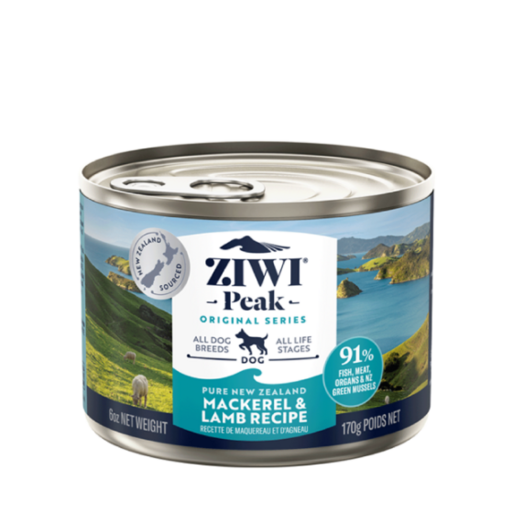
Want to know more? Check out our article: What is the best puppy food?
What to feed an Adult Brussels Griffon?
Once your Brussels Griffon is an adult, it's important to feed them a complete and balanced diet, and veterinarians particularly recommend feeding one that is formulated for small breed dogs.
Most Small Breed Adult Food from premium brands including Hills Science Diet, Royal Canin, Ivory Coat, Black Hawk or Advance are suitable for Brussels Griffons. These scientifically-formulated diets also contain balanced levels of protein, fat and carbohydrate plus vitamins, minerals and antioxidants for health and wellbeing.
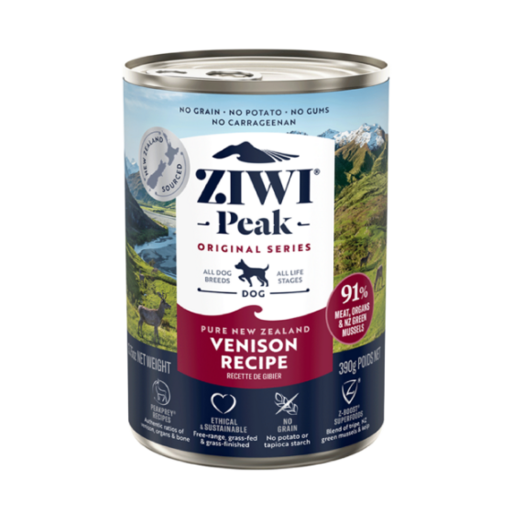
Brussels Griffon Health Concerns
Health concerns affecting the Brussels Griffon are common in pups that have not been bred responsibly, but may occasionally occur even when the best parentage and health screening has been done. Many conditions are those that affect brachycephalic (squished face) breed dogs in general, including eye issues and patellar luxation.
1. Brachycephalic Airway Syndrome
Griffons are a moderately Brachycephalic ('flat faced') breed, which can lead to obstructive airway syndrome in certain individuals. While not as severely affected as Pugs or French Bulldogs, affected animals can vary in severity from noisy or laboured breathing and snoring, to complete collapse of the airway. This condition is worsened by obesity, heat and exercise, therefore extreme caution is advised when exercising and playing in the heat.
Read more about Brachycephalic Airway Syndrome.
2. Eye Conditions
That 'bug eyed' look sure is heart-melting, but it does leave the eyes more exposed to sustaining traumatic injury, including proptosis (popped out eyeball) and corneal ulcers (sores on the surface of the eye). Signs of corneal ulcers may include squinting, blinking, a cloudy appearance on the surface of the eye or reddened appearance to the whites of the eyes. These conditions require immediate veterinary attention and may require medicated eye drops or even surgical procedures.
3. Patella Luxation
Patellar luxation refers to a condition where the dog's kneecap slips out of its normal position. It is often associated with skeletal deformities that are present at birth. Frequent dislocation of the kneecap can cause locking of the leg and pain in the joint. Dog owners will often notice their dog skip or run around on three legs, holding up the leg with the problematic patella. Luxation occurs when there is a structural abnormality or when a traumatic injury has affected the joint. Keeping your dog at a healthy weight and avoiding rough exercise can help ease the pressure on the joint and reduce symptoms.
Read more about Patella Luxation in Dogs.
4. Hip Dysplasia
Hip dysplasia refers to a condition where the conformation (physical structure) of the hip joint is abnormal. A healthy hip joint operates as a smooth 'ball and socket' type joint, whereas hips affected by dysplasia typically have a flattening of the 'socket' component of the joint, resulting in a shallow joint where the 'ball' or head of the femur is not held securely. This leads to instability of the joint which may cause pain in the young dog (juvenile hip dysplasia) and ultimately causes development of osteoarthritis.
Read more about the condition, prevention, and treatment in our article: Hip Dysplasia in Dog
5. Dental Disease
Due to their brachycephalic 'squished in' face and shorter jaws, the Griffon may have overcrowded and maloccluded teeth. This can lead to food getting caught in the teeth and excess tartar buildup, which doesn't scrape off while eating as it would in a normal dog mouth. This means that regular dental procedures will be required at your vet, as well as daily tooth brushing at home.
Read more about ways to maintain your dog's teeth in our article: Dental Care for Dogs
Top health and supplement recommendations for Brussels Griffons:
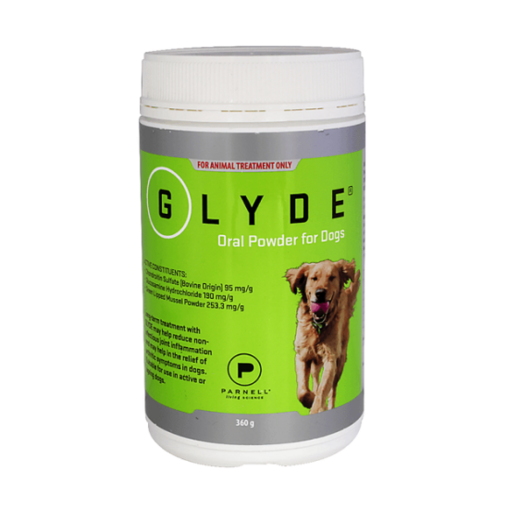
Glyde is a joint supplement containing New Zealand Green Lipped Mussel which is rich in omega 3 fatty acids, vitamins and minerals to help reduce joint inflammation. It helps prevent joint pain and can even improve the coat quality.
Contains Epiitalis, a unique plant oil extract combined with marine concentrates including green lipped mussel, shark cartilage and abalone to target joint inflammation. It is and safe to give long term.
Toothbrushing is the most effective method to ensure healthy teeth in your Griffon. This kit contains a small rubber finger toothbrush and toothpaste dispenser.
Specifically designed for smaller dogs with shorter coats, this convenient tool helps to strip away loose fur from the coat to minimise shedding in the home.
Breeds Related to the Griffon
The Brussels Griffon is a toy breed that was created by crossing the Affenpinscher with a pug, and Cavalier King Charles Spaniel. These breeds therefore tend to be closest in genetics, demeanour, and appearance.
Affenpinscher
The Affenpinscher, often affectionately referred to as the "Monkey Terrier," is a small and charming toy breed known for its distinctive appearance and lively personality. Brussels Griffon dogs were originally bred from the Affenpinscher and other breeds. Originating in Germany, these pint-sized dogs are known for their wiry, dense coat, which forms a mane around their face, giving them a somewhat comical and expressive look. With a keen intelligence and a playful spirit, Affenpinschers thrive on human interaction and enjoy participating in various activities. Their charming antics and unique appearance make them an endearing choice for those seeking a delightful and spirited canine companion.
Pug
The Pug, with its unmistakable wrinkled face and charmingly compact build, is a small breed that packs a big personality. It's believed that the pug was used in the original breed mix that resulted in the Brussels Griffon. Originating from China, these affectionate dogs have a distinctive curled tail and a short, smooth coat. Another brachycephalic breed, pugs are prone to many health conditions that result from this malformed skull and are particularly sensitive to heat stroke. Health concerns aside, Pugs are known for their loyalty and gentle disposition, making them cherished companions and adored members of many households.
Cavalier King Charles Spaniel
The Cavalier King Charles spaniel is an incredibly affectionate, playful, intelligent dog that eagerly provides endless devotion to their owners. These happy little dogs are great with kids, and their desire to interact with their guardians makes them pleasurable household companions.
Further Reading
Want to know more? Check out our Discover Page for more tips from our expert vets on keeping your pets happy and healthy.
